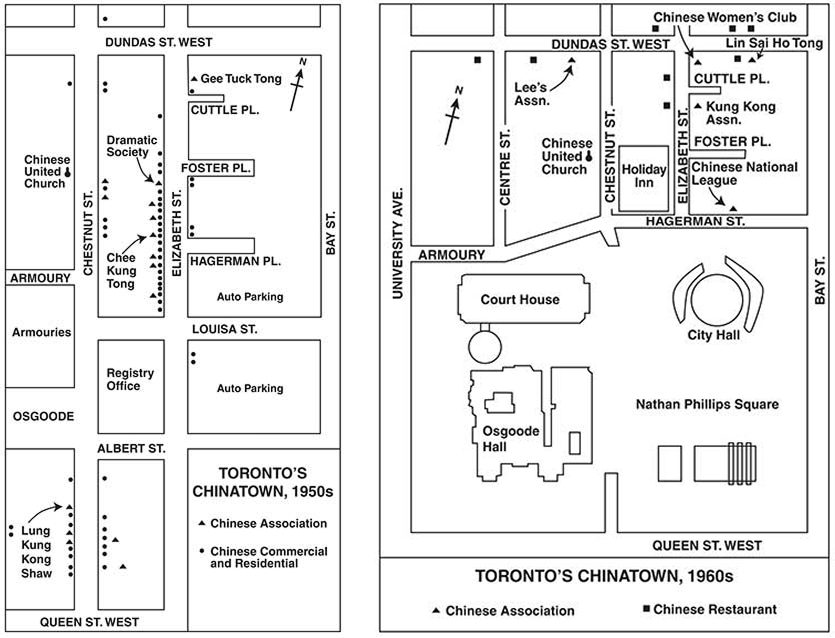
Apr 1, 1955
Toronto Old Chinatown Partial Demolition
April 1, 1955, expropriation began in Toronto's Old Chinatown, leading to the displacement of over 500 Chinese. The next day, The Globe and Mail reported that “half of Chinatown died,” as long-standing shops and cafés were closed to make way for a new City Hall and Civic Square. Although the development plan had been approved in 1947 by Toronto's civic leaders, the Chinese community resisted for years. The demolition of homes and businesses along Elizabeth and York Streets disrupted a vibrant immigrant community that had thrived there since the early 20th century. Families lost not only their livelihoods but also a vital cultural and social hub. The loss of Old Chinatown was a profound disruption for Chinese Canadians, who had established a vital cultural and economic hub in the area.

Apr 1, 1992
China's International Adoption Program Begins
China's international adoption program officially began on April 1, 1992, after the Adoption Law was enacted in December 1991. Influenced by the one-child policy and a cultural preference for sons, the program led to the adoption of over 8,000 children—mostly girls—by Canadian families. Adoptions were already happening in isolated cases before 1992. Notable adoptees like Olympic swimmer Maggie Mac Neil (born February 26, 2000, in Jiujiang, China) reflect the opportunities these adoptions offered. Yet, many adoptees faced complex ethical challenges, including cultural disconnection, racial isolation, and identity struggles. On September 5, 2024, China formally and permanently ended international adoptions for non-relatives.
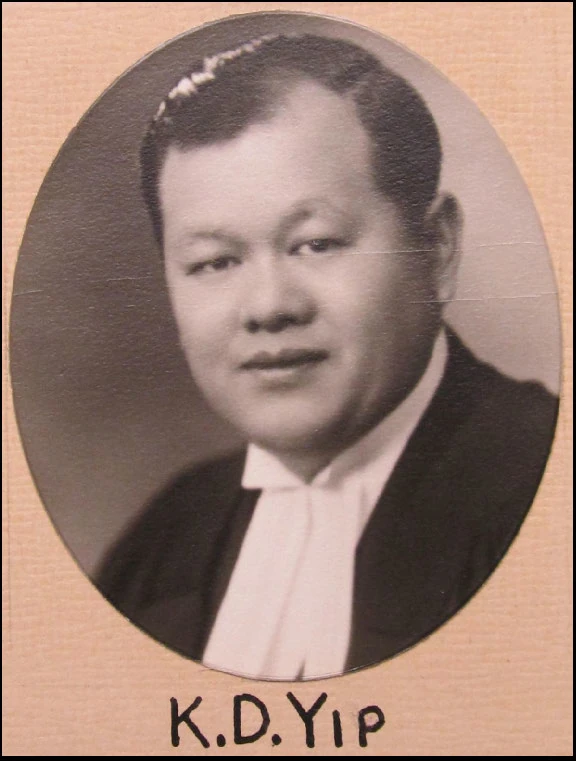
Apr 12, 1906
Kew Dock Yip: First Chinese Canadian Lawyer & Rights Advocate
Born April 12, 1906, in Vancouver, Kew Dock Yip (葉求鐸) became the first Chinese Canadian to be called to the bar in Canada, achieving this milestone in Ontario in 1945. He was a leading figure in the Chinese Canadian community's fight for civil rights. Yip played an instrumental role in the successful campaign to repeal the discriminatory Chinese Exclusion Act in 1947 and in securing federal voting rights for Chinese Canadians that same year. His legal expertise and tireless advocacy were crucial in challenging systemic racism and advancing equality. Yip's dedication helped dismantle decades of unjust laws, profoundly impacting the Chinese Canadian community's ability to participate fully in Canadian society and paving the way for future generations.
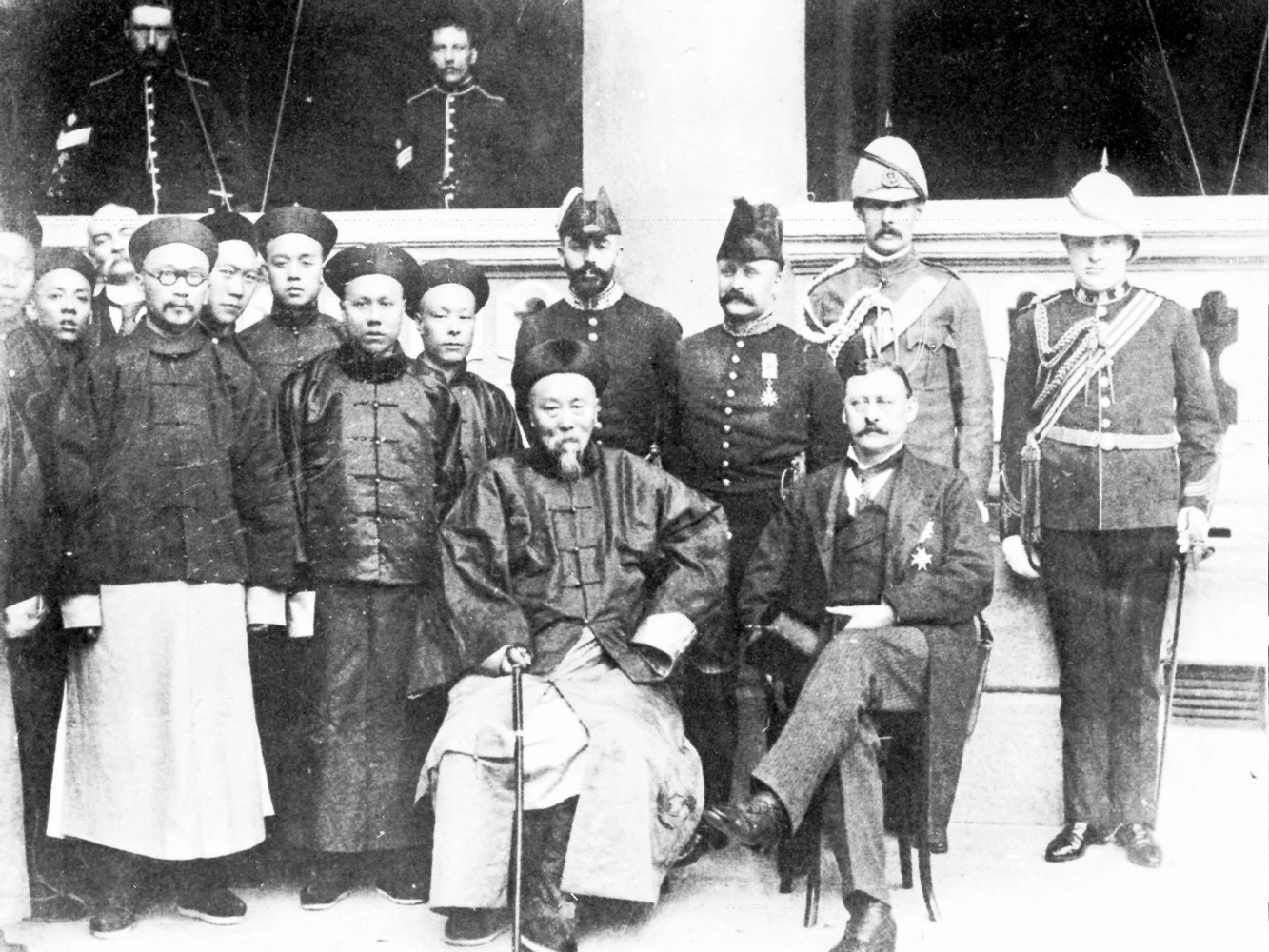
Apr 14, 1899
British Troops Advance in Hong Kong New Territories: Six-Day War
April 14, 1899, British troops advanced into Hong Kong's New Territories to assert control following its lease from China, sparking the Six-Day War. This event primarily impacted the local Punti clans who resisted British takeover. Local resistance from armed Punti clan militias confronted the British forces. Under Governor Sir Henry Arthur Blake, the British military response led to an estimated 500 Chinese villagers killed. Blake also served as Governor of Newfoundland from 1887 to 1889; in recognition of his service, the community of Blaketown, Newfoundland, was named in his honour.
Global Affairs
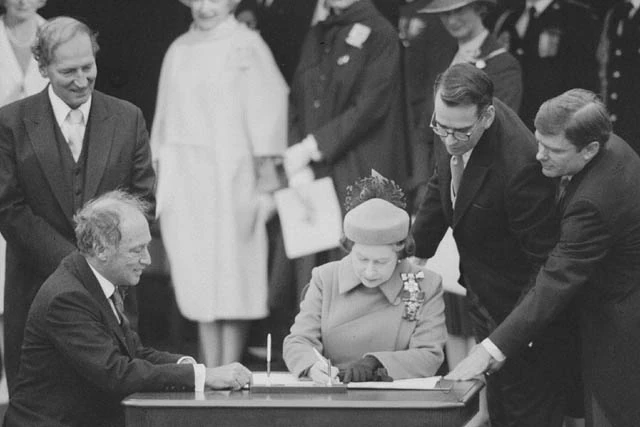
Apr 17, 1982
Canadian Charter of Rights and Freedoms
April 17, 1982, the Canadian Charter of Rights and Freedoms was enacted, a landmark moment for Canada. It enshrined fundamental rights and freedoms, guaranteeing equality before the law for all. For Chinese Canadians, the Charter has been pivotal, providing a robust legal framework to challenge discrimination and affirm their rights, building upon the struggles against historical injustices like the Head Tax and Exclusion Act. It marked a significant step towards a more inclusive and equitable society, profoundly impacting the legal and social standing of Chinese Canadians and all minority groups, ensuring their rights are constitutionally protected.
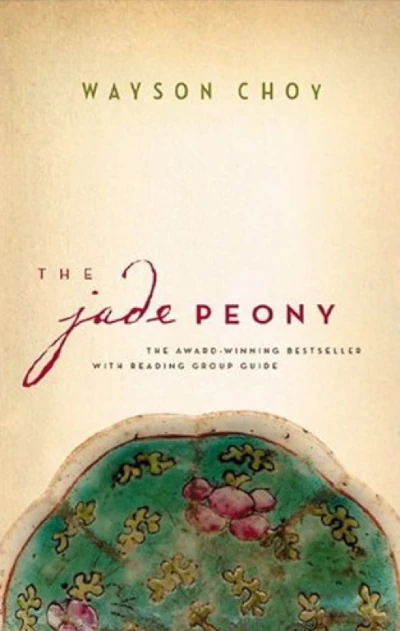
Apr 20, 1939
Wayson Choy: Acclaimed & Openly Gay Chinese Canadian Writer
Born April 20, 1939, in Vancouver, BC, Wayson Choy (崔維新), (died April 28, 2019), was an influential Chinese Canadian novelist, memoirist, and short-story writer. He was appointed a Member of the Order of Canada in August 2005. His debut novel, 'The Jade Peony', tells an intimate tale of an immigrant family living in Vancouver's Chinatown during the Second World War. It won the Trillium Book Award and the City of Vancouver Book Award in 1996. His second novel, 'All That Matters', won the Trillium Book Award and was shortlisted for the Scotiabank Giller Prize. His first memoir, 'Paper Shadows: A Chinatown Childhood', won the Edna Staebler Award for Creative Non-Fiction. An openly gay man, Choy was an important figure in LGBTQ+ literature as one of Canada's first openly gay writers of colour to achieve widespread mainstream success. He was also an advocate for LGBTQ+ rights as well as a dedicated teacher and mentor. He has been called one of Canada's most gifted storytellers.
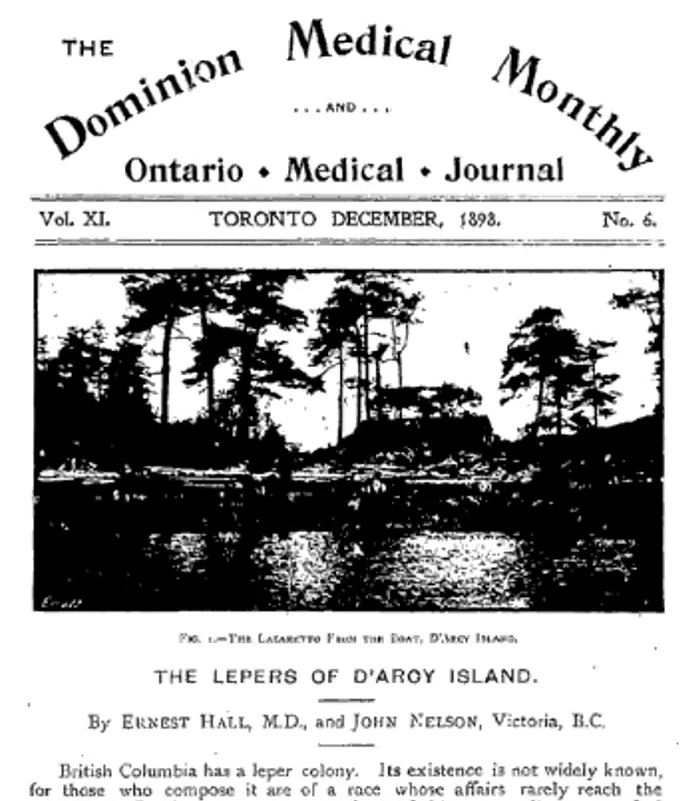
Apr 22, 1891
D'Arcy Island: Chinese Men Exiled to Leper Colony
D'Arcy Island lazaretto, from April 22, 1891, became a site of profound racial injustice. Victoria officials fueled public fear, to justify exiling diagnosed individuals, overwhelmingly Chinese men, to this isolated spot. These men faced deplorable conditions, minimal medical care, and irregular supplies.
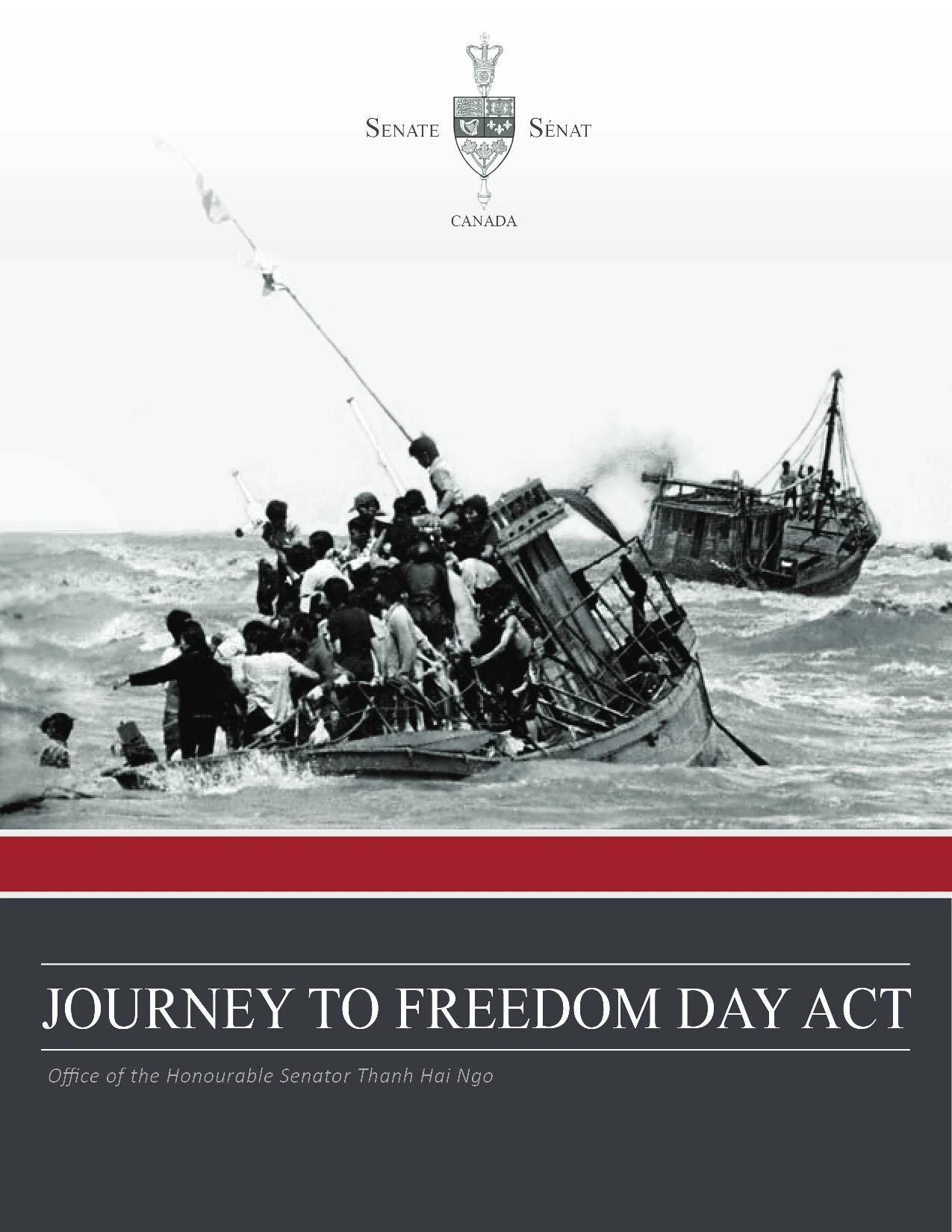
Apr 30, 1975
Fall of Saigon: Canada Welcomes Ethnic Chinese Refugees
The Fall of Saigon on April 30, 1975, led to a significant humanitarian crisis. Canada responded swiftly, welcoming thousands of refugees fleeing Vietnam, many of whom were of Chinese heritage. This compassionate action involved special measures to accept those with relatives in Canada and facilitate the settlement of others. This period marked a defining chapter in Canada's history of refugee resettlement, showcasing the country's humanitarian spirit. In 2015, Canada officially recognized April 30th as "Journey to Freedom Day," an act to commemorate the exodus of Vietnamese refugees, honour their perilous journey to safety, and celebrate their successful integration and contributions to Canadian society.
Immigration